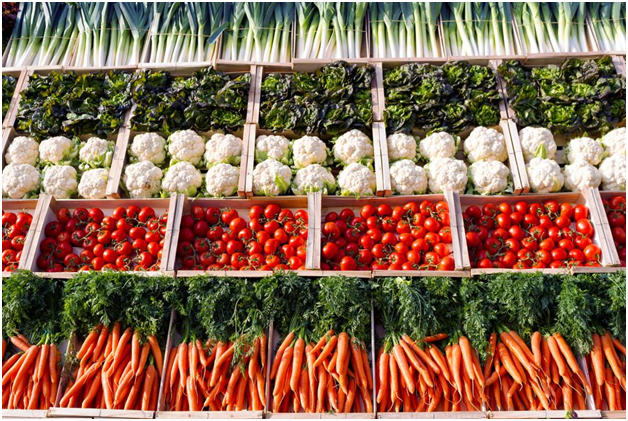Archive for the ‘Heart Health’ Category
Cinnamon: A Simple Ingredient Can Have Incredible Power
March 21 2017
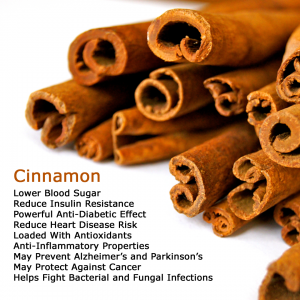 Did you know that cinnamon, a common ingredient that’s found in many of our own cupboards and used in many well know recipes, has some amazing properties!
Did you know that cinnamon, a common ingredient that’s found in many of our own cupboards and used in many well know recipes, has some amazing properties!
Just a few of the things it can do for your health includes:
- Lowering blood sugar
- Reducing insulin resistance, including powerful anti-diabetic effects
- Reducing heart disease risk
- Providing you with beneficial antioxidants
- Exhibiting anti-inflammatory properties
- Potentially helping to prevent Alzheimer’s and Parkinson’s disease
- Protecting against cancer
- Fighting bacterial and fungal infections
Recent studies also indicate it may be beneficial for those with HIV.
Wow! That’s a lot of punch in something so simple that we all take for granted in our everyday lives. The cure is really in our cupboard isn’t it!?
So the next time you look at your food, remember it’s more then just something you put in your mouth to feed hunger. The choices you make with your food can have dramatic effects on your health if used the right way.
We created MealEasy as a family with this in mind. If you would like to boost your health to new levels, please consider giving MealEasy a try. Whether you use it to make one meal or hundreds, you’ll be making a big impact on your well-being!
Please follow us on Instagram, Facebook, or Twitter for more helpful posts!
The Hidden Dangers of Processed Foods
October 12 2016
Did you know that the eating processed foods is one of the leading causes of major health issues and weight problems? You may unknowingly be eating these unhealthy foods routinely. Find out how to reduce your consumption of these deadly foods. Do so and you can improve your wellbeing significantly, safeguarding your most precious asset – YOUR HEALTH! 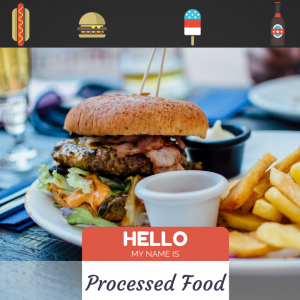
You’ve likely heard the words “processed food” in the past, and perhaps don’t think of it much while browsing the isles at the grocery store each week.
You may be wondering “What are processed foods?”… Well, you can think of them as any food that is unnatural, or does not occur naturally in nature. This includes foods that have been altered from their original form by addition of additives, preservatives, hormones, vitamins and minerals, heat treatments (that destroy natural enzymes), fatty acids, chemicals or that contain genetically altered ingredients.
Why Do Processed Foods Exist?
There are several reasons including to prolong the shelf life of the food, “enhance” flavor, make the food more esthetically appealing, and in general to try to get you (the consumer) to buy more and reduce associated cost to the food producer. Most processed foods are design with convenience in mind, ahead of your wellbeing.
Types of Processed Foods
Browsing the grocery store, you’ll begin to recognize that more and more of the foods we eat today are processed in some form. We as consumers need to keep our eyes open when purchasing food. This includes reading labels. It’s our own responsibility to choose what we eat carefully and individually to take control of our own health – no one else will do it for us!
In general most foods that are packaged, canned, or in some cases frozen are very likely to be processed in some form. Many have a very long shelf life.
More specifically, you’ll likely want to avoid these common culprits:
- Refined sugar including its variations such as corn syrup / high fructose corn syrup, dextrose, fructose, maltodextrin, sucrose, etc.
- Refined carbohydrates such as items with refined white flour.
- Artificial sweeteners such as aspartame (Equal / NutraSweet), Neotame, Saccharin (SugarTwin / Sweet’N Low) and Sucralose (a.k.a. Splenda)
- Chemically processed foods including artificial coloring, flavors, added textures or food additives.
- Soft drinks, or drinks with added sugar (including any of the refined sugar or artificial sweeteners, colorings or flavors)
- Fast foods
- Junk food
- Processed meats
- Frozen foods
- Refined wheat flour, including bleached white flour
- Boxed food items
- Margarine and hydrogenated vegetable fat
- Refined vegetable oil
- Canned items
- Genetically Modified Organisms (GMOs) and Foods – Hint: By avoiding the foods listed above, it will help reduce your exposure to the ever increasing use of unnatural and potentially detrimental effects of genetically modified foods that are more commonly used in processed foods.
In addition to avoiding the foods listed above, whenever possible it’s advisable to eat organic products including produce, milk product and meets, as organic foods are subject to less processing and reduce to odds of the damaging effects of processed foods. The more processed foods you eat, the more you are subjecting your body to its dangers.
Before explaining the dangers, it should be noted that not all processed foods are bad food choices. Though it’s always preferable to eat fresh whole foods that resemble their most natural form, some processed foods can be eaten safely as part of a balanced diet, and/or in moderation. For example, frozen vegetables or fruits are not necessarily bad choices though fresh alternatives of course are healthier.
The processed foods that are of concern are more so the chemically processed foods.
What Are the Dangers of Processed Foods?
There’s no question you want to slash your risk of disease, improve your overall health and live a longer happier life. We all do, but most of us don’t take action and don’t realize the MOST EFFECTIVE way to achieve this is by paying closer attention to what we eat!
Studies confirm that the effects of processed foods are making us sicker, fatter and shortening our lives at increasing rates.
Processed foods generally contain high amounts of refined sugar and/or carbohydrates (see the list of “refined sugar” types above). This is a major concern, as the human body was never designed to eat so much sugar. Excessive sugar consumption has been linked to many diseases including Alzheimer’s disease, diabetes, heart disease, obesity and even cancer. Consuming too much refined carbohydrates in general can also lead to issues such as insulin resistance; a precursor to many chronic diseases.
You are likely unaware of just how much sugar is in typical items you use regularly. Items that may not seem like they contain much sugar, in fact have very high amounts and it all adds up throughout the day.
On top of this, processed foods contain artificial ingredients such as preservatives, colorings and flavors that are designed in the interest of food manufactures, and not your health. Studies confirm that many of these have been linked to allergic reactions, cancer, and other diseases.
Another major issue is the amount of unhealthy fats, known as trans fats. These fats are commonly used in processed items, and has been linked to many health issues including heart disease.
These convenience foods also lead to one of the developing world’s biggest issues… obesity. Processed foods generally have much more calories vs natural alternatives and have less fiber content. This leads to eating too many of the wrong type of calories and in the end, weight gain.
|
Interestingly, recent studies on saturated fats and heart disease, show whole food sources such as eggs, dairy products, meats, etc. are healthy to eat and are not linked to heart problems; so long as trans fats are avoided.
Think twice when you eat processed foods – they’re more dangerous then they may seem.
What Should You Do?
Thankfully, there is an easy solution. All you need to remember is to buy mostly whole foods, and minimize processed items. Be mindful of what you are putting in your grocery cart.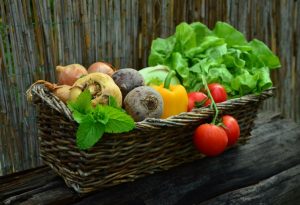
Think of it this way: If it wasn’t in that form in nature, there’s a good chance it’s not the best food choice that your body was designed to eat.
Look for fresh vegetables, fruits, unprocessed meats, eggs, nuts, seeds and avoid boxed items, cans, and convenience foods and make your meals at home.
An easy way to improve your health and avoid the dangers of processed food is to have a plan about what you will eat and to make meals from scratch at home. By doing so you avoid unhealthy purchases, and know without a doubt you are eating the right foods for optimal health and wellbeing.
If you would like help planning whole food meals please consider joining MealEasy. All of our meal plans are based on using unprocessed whole foods. You’ll see step-by-step how to make a huge variety of delicious healthy meals the easy way. Improve your diet significantly by giving it a try.
Most Health Issues Are Related To Food – That Means There IS HOPE You Can Cure Your Problem!
August 01 2016
In today’s fast-paced life, we often don’t think about the true root cause of most of our health problems. More often than not it is the food we eat – no matter what conventional health care professionals tell you… 
WHAT YOU EAT MATTERS AND IT HAS INCREDIBLE POWER TO CURE YOU OF THE WORST HEALTH CONDITIONS!
Recent studies have linked the food we eat to leading chronic diseases. What it also means is that the food we eat can also have a profound effect on our health!
Can Even Cancer Be Prevented Or In Some Cases Even Cured With The Food We Eat?
Yes it can. Just think about it! According to recent statistics, 1 in 2 men and 1 in 3 women is expected to be diagnosed with cancer in their lifetime. Cancer is the dreaded word none of us want to hear from our doctors, but it’s just all too common.
Conventional medicine will have you believe that the front line approach is radiation, chemo, and surgery. The system is in place and will have you believe you have no control. Although success  rates of some cancer treatments have improved, the success rate of many forms of cancer have not improved significantly over the years, and the conventional treatment for the other forms of cancer is often just as bad as the disease, due to the suffering induced from the treatment itself.
rates of some cancer treatments have improved, the success rate of many forms of cancer have not improved significantly over the years, and the conventional treatment for the other forms of cancer is often just as bad as the disease, due to the suffering induced from the treatment itself.
Doctors have good intentions, but are unaware of the effectiveness of alternative treatment choices. To learn more about alternative tried and proven cancer treatment alternatives please visit our trusted friends at The Truth About Cancer.
It turns out people are getting cured successfully and PERMANANTLY using natural methods that use food as a primary key form of medicine. In most cases, we bring on our own disease due to our lifestyle and in very large part due to what we eat.
Did you know recent studies have shown:
- Eating just 10 grams or more per day of button mushrooms per day reduced breast cancer rates by about 64%! And by also drinking green tea reduced breast cancer rates by up to 89%! The results are incredible.
- Berries contain ellagic acid and have been shown in lab studies to reduce esophageal cancer 30-70% and colon cancer rates by 80%! The research is encouraging to say the least.
- Many patients have reversed their cancer diagnosis by following specifically designed diets, such as the well-established Gerson Therapy alone, primarily based on juicing and using natural nutrients to heal ones’ body.
Food has the power to heal us, IF we choose to use food as our medicine. We encourage you to be your own body’s “best doctor” and search for the truth about how to reverse and prevent cancer naturally – your doctor and/or the medical establishment are unaware that natural and effective treatments DO EXIST RIGHT NOW to cure even stage 4 cancer in some cases and this degree of cancer is typically thought to be incurable.
What About Heart Disease? Can It Be Cured Without Surgery?
YES – Absolutely! A large part of reversing heart conditions is related to our lifestyle and in particular our diet.
Eat the right food and follow a healthy lifestyle and you may not need surgery, even if your surgeon told you that it’s imperative and urgent! A bold and profound statement, but read on…
Dr. Julian Whitakar is the author of author of Reversing Heart Disease, Reversing Diabetes, and Reversing Hypertension and founder / past president of the American Preventive Medical Association. He states “bypass surgery does not prevent heart attacks or save lives in close to 90 percent of people who receive it”, a 1977 study showed no benefits, though it’s still blindly being done today!
MUCH safer alternative methods exist, and a key part of it is diet and lifestyle.
Let’s stop and consider safer common sense options, before we fall victims of the routine and established practice to cut first, and consider “alternative” approaches second. Freedom of choice applies to choices we make when it comes to our health. Consider alternatives when a conventional medical treatment is offered. Alternative treatments do exist and often the results are profound and superior to the conventional options. Educating ourselves and finding a practitioner we can trust can save our life.
Will You Consider Your Food As Your Primary Medicine?
Heart disease and cancer are the top two causes of death in America today, accounting for over 46% of all deaths!
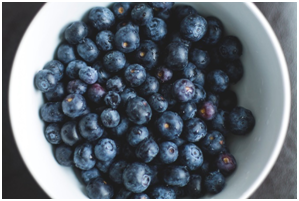 Our body has the astonishing power to renew itself given the right fuel. Imagine what you could do by simple eating better…
Our body has the astonishing power to renew itself given the right fuel. Imagine what you could do by simple eating better…
Think about it: What are you fueling your body with each and every day?
Start with whole foods that are made of raw ingredients and avoid unhealthy packaged and processed foods. That means:
- Include lots fresh vegetables in your diet
- Eat organic and avoid genetically modified foods (GMO)
- Avoid boxed and packaged foods
- Avoid processed meat (that studies now show as linked to causing cancer)
- Eliminate entirely all artificial sweeteners (extremely unhealthy and linked to many diseases and obesity)
That’s just a starting point to get you on the right track, but it can be life changing if you decide to commit to it.
Planning ahead gives you a major advantage and ensures the food you are putting on your plate is beneficial to your health.
MealEasy® meal plans all follow natural health principles, so whether you want to generally improve health, lose weight, improve your heart health, or combat diabetes, there is something for everyone. Check out our heart healthy, weight maintenance, balanced and pre-diabetes meal plans today.
5 Tips To Eat Healthy On A Budget
July 27 2016
Despite its unlimited benefits, healthy food is considered to be more expensive. According to a study by Cambridge University, healthy food costs three times as much as consuming unhealthy food.
So should we use this to justify eating the “unhealthy” food that is often not even fit for human consumption? We also need to ask ourselves if our health is worth the savings and then, should we be even comparing? There are huge savings to be realized by making our own meals, which by far outweighs the “additional” cost for the “healthy” food.
Let’s look at it this way: Would you put cheap oil in your car’s engine to save $20.00, if you knew it could cost you $600 in repairs down the road? And here we are talking about our health, not a car engine.
If money is still an issue, there are plenty of practical ways to reduce expenses.
Here are 5 tips that can help you eat well-balanced foods on a budget:
Buy seasonal produce
Purchase seasonal food to save money. Not only do seasonal fruits and vegetables taste better, they often cost less than off-season items. Since seasonal produce is in abundant supply, it costs less than foods that are out of season.It’s a good idea to stock up on these items.
Buy in bulk
Another great way to save money and time is to purchase food in bulk. Although bulk purchases entail a hefty cost, it really saves money in the long run.
Buy seasonal produce and grains in bulk, whenever possible. Make sure to store them properly in air-tight containers, so that they don’t go bad.
Similarly, you can purchase large quantities of meat and then freeze or use smaller portions for use later on.
Use leftovers
Try to cook large portions. If you are left with leftovers, don’t discard anything. You can reuse dinner leftovers as a scrumptious homemade lunch. Furthermore, you won’t have to make multiple meals throughout the day.
You can even freeze your dinner leftovers and then reheat them later on as convenient lunches or dinners. To help you with this, MealEasy meal plans show you which meals are freezable.
Eat more beans and whole grains
Try to eat more beans and whole grains than meat. Black beans are packed with folic acid, fiber and potassium. They cost $0.30 per 1/2 cup or $1.50 per can. Moreover, quinoa and brown rice are delicious yet economical healthy food items. Purchase these items in bulk. You can use them immediately or store them for later use.
Plan and prep meals
Most importantly, plan your meals ahead of time, to help you not only to balance your nutrition, but also to balance your budget.
Planning ahead not only gives peace of mind knowing what your next meal is going to be,but by having a shopping list generated as part of the plan,you will avoid spontaneous purchases that can add to the cost of groceries,for food you don’t really need.
Making homemade meals has so many benefits vs eating out, as described in this informative guide.
For the most efficient online meal planner, we have got you covered. MealEasy provides an array of low-cost meal plans to help families save on groceries and the cost of unhealthy eating. To keep your costs down, MealEasy indicates which meals are lowest cost, while ensuring they are healthy. In addition, the online portal features other meal plans, which include heart-healthy meal plans, and vegetarian meal plans – among others.
Is Your Diet the Real Risk for Your Heart?
May 26 2016
Heart disease is the most common cause of death in the country today. According to the Center for Disease Control and Prevention, almost 610,000 people die from a heart condition every year. Continue reading
The Top 4 Heart Healthy Foods You Should Include In Your Diet
March 07 2016
In our day-to-day life most of us do not think about our heart health until we experience a problem. Heart disease is the number one cause of death globally. Your heart health to a large degree depends on you and your view on healthy eating. Continue reading
The road to good heart health
January 29 2014
Good health starts with the right food choices, deciding what to eat and more importantly what not to eat.
Fad diets come and go but a whole food diet and active lifestyles never go out of fashion. Yes –you have heard all this before but somehow the message gets lost in translation.
Too often people are too stressed and have too little time to make the right food choices. Instead, they turn to packaged foods high in processed sugars (high-fructose corn syrup) and fats (trans-fats), and filled with chemical preservatives and artificial colors and flavors to curb their cravings.
The price paid for the convenience of their ready-to-eat, shelf-stable food is in the quality of their health and well-being. The advent of the industrialized food industry has mapped closely with the emergence of many chronic auto-immune, inflammatory and neuropsychiatric diseases in the developed world. Myriad problems including diabetes, obesity, and thyroid disease have been linked to the toxic effects of the industrialization of our food supply.
But we can choose to be pro-active in shaping our health through our lifestyle and life choices. Good health, vitality, a sharp mind and strong body all start with our fork.
Using a meal planning tool such as the MealEasy system which focuses on lean meats, whole foods and healthy fats like omega-3 can help you find a way to reduce your stress and the stress you are putting on your health.
Easy Father’s Day BBQ Ideas
June 12 2013
 MealEasy’s Chef Paul recommends this fabulous heart-healthy meal for Father’s Day:
MealEasy’s Chef Paul recommends this fabulous heart-healthy meal for Father’s Day:
Grilled Pork Chops with Feta & Tomatoes
Grilled Sweet Potato & Asparagus
Fresh Fruit with Vanilla Sour Cream
It’s Father’s Day this Sunday and what better way to show dad you love him than by letting him relax so you can take over the grill!
Here’s your chance to show dad that the grill can cook more then steaks, burgers and sausages. Yes, you can even grill heart-healthy vegetables!
We’ve assembled a super easy and supremely tasty barbecue feast fit for the King of the household. With a yummy grilled pork chop featuring Mediterranean flavors, grilled asparagus and grilled sweet potato with a dessert featuring fresh fruit. Dad won’t even notice that it’s fewer than 15g of fat!! That’s less than a tablespoon including the desert! Taking care of dad’s heart on Father’s Day – what says I Love You better than that?!
So grab those BBQ tongs and get grillin’! And the best part about grilling – there’s no pots and pans to clean up afterwards!
Enjoy!
Download your own Father’s Day Menu Now
Download Father’s Day Menu Grocery List
Get Fresh, but Stay Safe
February 18 2013
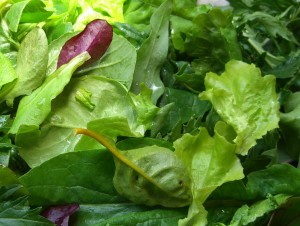
Leafy greens have been found to be a common source for food borne illnesses in the United States.
In light of the recent illnesses at fast food chains, eating at home makes more sense than ever.
Many food borne illnesses that surface in green vegetables can easily be avoided by washing greens thoroughly and ensuring fresh fruit and vegetables do not come into contact with raw meats. Cross contamination is easy to do if you’re not careful. Using a separate cutting board and utensils is very important when preparing raw meats for cooking and then chopping fresh vegetables.
Our very own Chef Paul uses many cutting boards when preparing dishes and always washes his hands with hot soapy water after touching raw meat.
Have a look at Chef Paul’s latest video for safety tips:
AHWW Nuts!
July 26 2012
Did you know that eating almonds can lower you LDL and reduce your risk of heart disease?
It’s true. Did you know that they can also help you lose weight? Yes, true again. Substituting almonds for less healthy foods can have the duel effect of lowering your risk of heart disease and helping you lose weight.
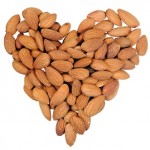 Almonds are incredibly versatile as well. Eaten whole, they’re great as a snack; they’re wonderful in salads and cereals; and great in baked goods and breads. Did I mention they taste wonderful too? Next time you’re reaching for a bag of chips or a chocolate bar as a snack, try a handful of almonds instead, they’ll fill you up, they taste great and they’re good for you!
Almonds are incredibly versatile as well. Eaten whole, they’re great as a snack; they’re wonderful in salads and cereals; and great in baked goods and breads. Did I mention they taste wonderful too? Next time you’re reaching for a bag of chips or a chocolate bar as a snack, try a handful of almonds instead, they’ll fill you up, they taste great and they’re good for you!
Here are some facts about almonds:
Almonds are a great source of vitamin E, with 25g providing 70 percent of the recommended daily allowance. They also have good amounts of magnesium, potassium, zinc, iron, fiber and are a good source of healthy monounsaturated fat. They contain more calcium than any other nut which makes them great for vegetarians who do not eat any dairy products.
They also contain amygdalin, also known as laetrile or vitamin B17, the anti-cancer nutrient. Almonds also contain several phytochemicals which are thought to contribute to a healthy heart. A handful of almonds a day help reduce the risk of heart disease by lowering ‘bad’ blood cholesterol (LDL) by as much as ten percent.
Almonds are high in monounsaturated fat, a key fat found in many Mediterranean diets, and which gives them much greater benefits than simply being cholesterol-lowering. Nearly every research study shows those who eat a traditional Mediterranean diet not only have a lower risk of heart disease and cancer, they also live longer.
For many years almonds were considered ‘fattening’. However, studies have shown that those who ate the most nuts tended to have lower body mass indexes. Although almonds are high in fat and calories, eating them in moderation can actually help with weight loss.
Almonds are high in protein, around 18 percent, and contain virtually no carbohydrates, they are ideal for diabetics, pre-diabetics or anyone with blood sugar issues.
In traditional Chinese medicine, almonds are considered anti-inflammatory, anti-spasmodic and are used as a tonic. They are also known as brain and bone food, probably due to their high calcium content.
Check out MealEasy.com for many interesting recipes and meals using almonds.

